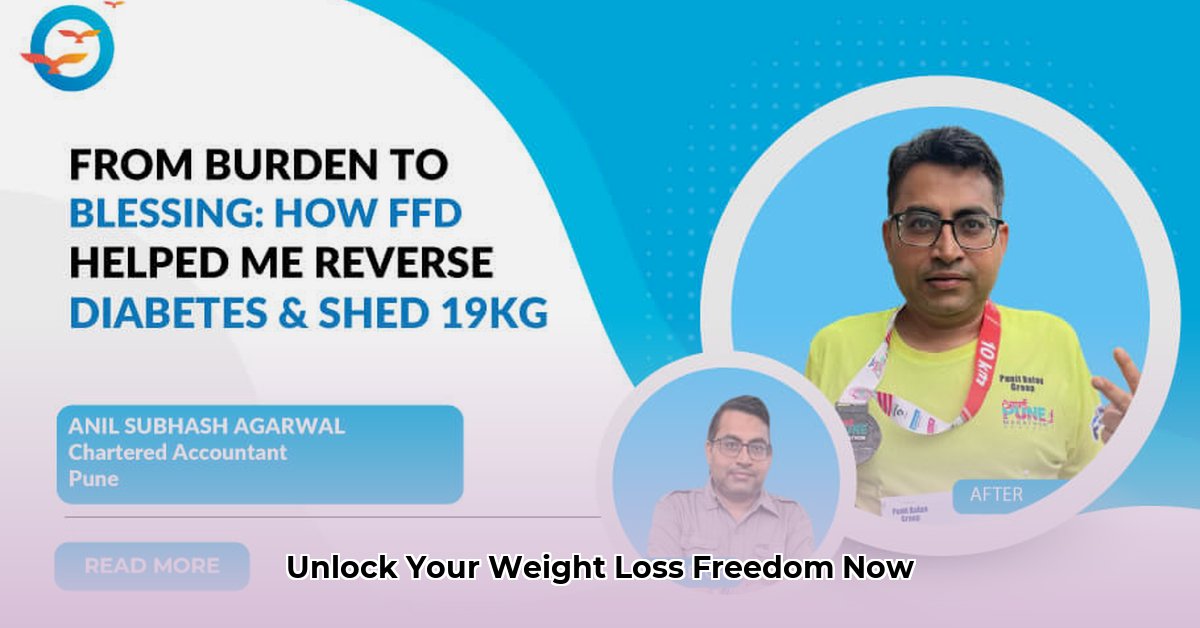
Tired of the weight loss rollercoaster? Finding the right approach can feel overwhelming, but lasting results are achievable. This article explores two major strategies: medication-assisted weight loss and behavioral modification. We’ll compare their pros, cons, costs, and risks, empowering you to choose the path best suited to your needs and achieve lasting weight loss.
Weight Loss Freedom: Finding Your Path
Achieving lasting weight loss requires a personalized approach. Two prominent methods offer distinct pathways: medically-guided weight management and behavioral modification. Let's examine each, considering effectiveness, costs, and individual suitability.
Medically-Guided Weight Management: A Closer Look
Medication-assisted weight loss, often involving GLP-1 receptor agonists like semaglutide (Wegovy) or tirzepatide (Mounjaro), can accelerate weight loss by suppressing appetite and improving insulin sensitivity. These medications, however, are not a standalone solution.
Pros:
- Potentially faster initial weight loss compared to lifestyle changes alone.
- Medical supervision provides safety and personalized adjustments.
Cons:
- Potential side effects, such as nausea, constipation, or other gastrointestinal issues. These vary from person to person and should be discussed with your doctor.
- Can be expensive, and insurance coverage varies.
- Long-term success requires accompanying lifestyle changes.
Behavioral Modification: A Holistic Approach
This approach, often echoing principles advocated by experts like Dr. Phil, emphasizes sustainable lifestyle changes. It addresses emotional eating, habits, and mindset, creating lasting patterns for health and well-being.
Pros:
- Addresses underlying emotional factors contributing to weight gain.
- Focuses on sustainable, long-term habits.
- Empowers self-management and informed choices.
Cons:
- Requires significant self-discipline and commitment.
- Weight loss may be slower initially than with medication.
- Success hinges on sustained dedication.
Comparing Your Options: Which Path Best Suits You?
Choosing between medication and behavioral modification depends on individual circumstances. Medications offer the potential for faster initial weight loss but carry costs and potential side effects; they require ongoing medical supervision. Behavioral modification, while potentially slower, fosters sustainable habits, avoiding medication's costs and side effects, but demands high commitment and self-discipline.
| Feature | Medication-Assisted Weight Loss | Lifestyle Modification |
|---|---|---|
| Speed of Results | Potentially faster | Slower, but more sustainable |
| Cost | Can be substantial | Typically lower (consider therapy costs) |
| Side Effects | Possible (nausea, constipation, etc.) | Generally fewer |
| Sustainability | Requires lifestyle adjustments for long-term success | Built-in focus on enduring habits |
| Commitment Level | Moderate (medical supervision, lifestyle changes) | High (self-discipline, dedication) |
Charting Your Course: Actionable Steps
Regardless of chosen approach, these steps will guide your journey:
- Consult Your Doctor: Discuss both strategies to determine the best personalized approach. This crucial initial step ensures safety and appropriate guidance.
- Set Realistic Goals: Start with small, achievable goals. Celebrate progress, no matter how incremental. Remember to track your progress and adjust as needed.
- Build a Support Network: Surround yourself with supportive friends, family, or a weight-loss group. Consider therapy for support with behavioural changes.
- Adopting Healthy Habits: Focus on balanced meals, regular activity, and stress management. Long-term change is more powerful than short-term fixes. This will be supported by dietary changes and regular exercise.
- Embrace Self-Compassion: Setbacks are normal. Learn from them, and celebrate your successes. Be patient and persistent.
How to Compare Semaglutide and Tirzepatide
Both semaglutide (Wegovy) and tirzepatide (Mounjaro) are injectable GLP-1 receptor agonists. Tirzepatide also activates the GIP receptor, potentially explaining its often greater weight loss efficacy observed in some studies. However, more research with consistent dosing is necessary for definitive comparison. Costs and insurance coverage also significantly influence accessibility.
Choosing Between Semaglutide and Tirzepatide:
- Physician Consultation: Essential for a personalized assessment considering your health, potential benefits/risks, and financial implications.
- Cost and Insurance: Understanding cost and how insurance coverage affects accessibility is crucial before starting these medications.
- Realistic Expectations: Weight loss is a process, not a quick fix. Celebrate your progress along the way.
- Support System: Working with friends, family, or a support group strengthens motivation and encouragement.
Remember, weight loss freedom is a journey of self-discovery. Choose the approach that empowers lasting change, celebrate each step, and embrace the process.